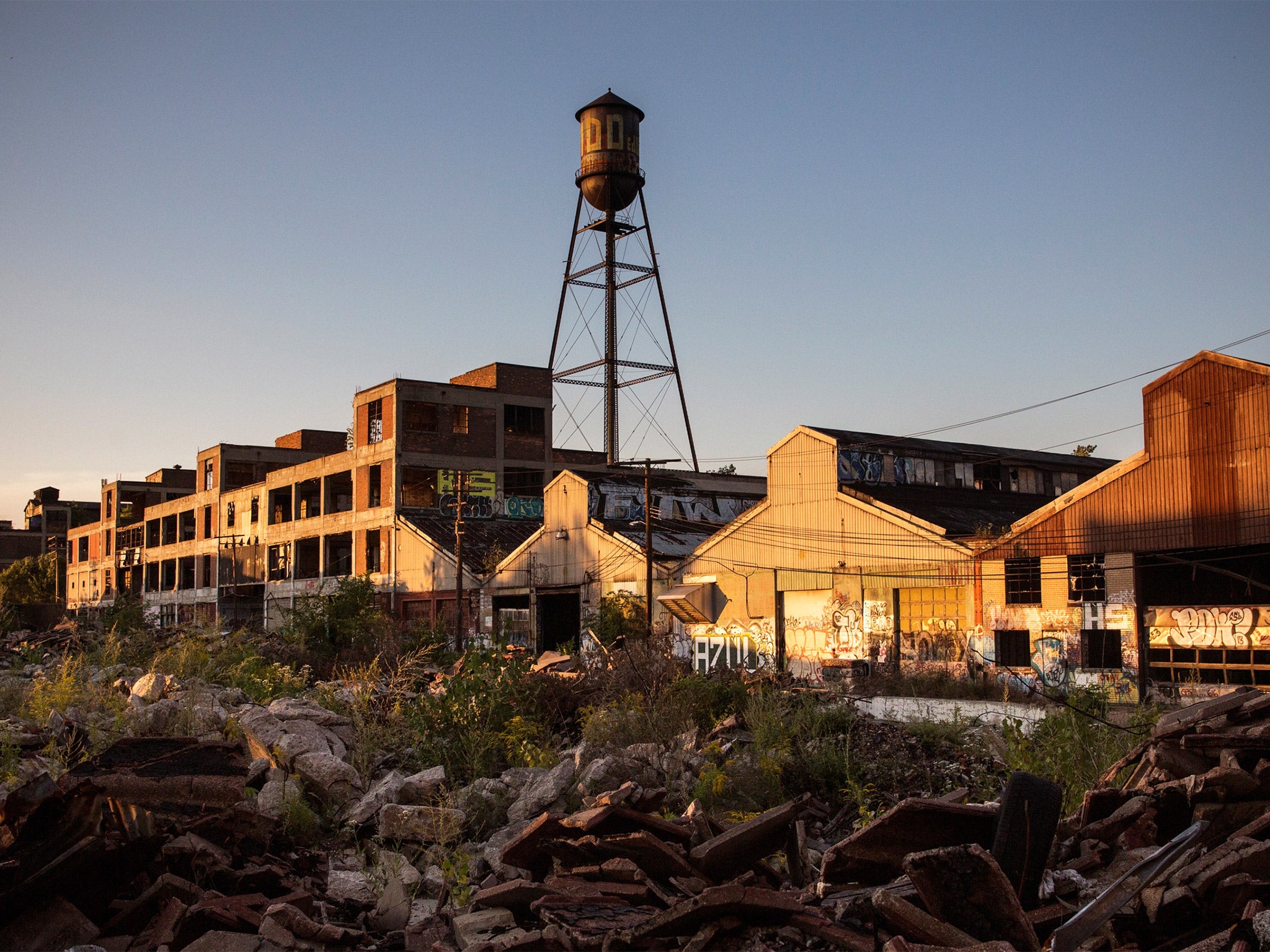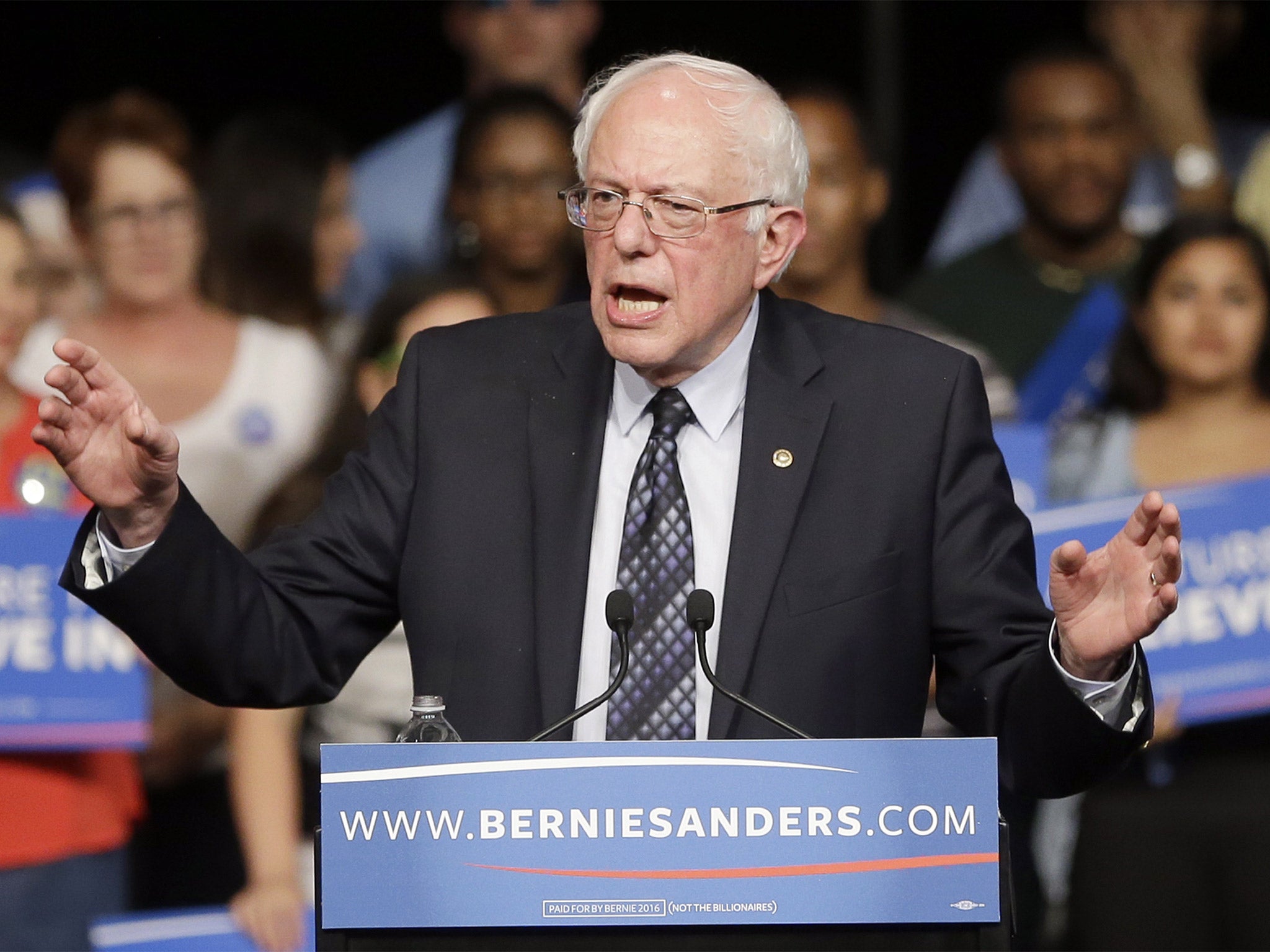US election: If it's Donald Trump vs Hillary Clinton, it will be thanks to the 'rust belt revolution'
Latest results suggest the blue-collar whites of Michigan, Ohio and Illinois have redrawn the political map

The results of “In-between Tuesday”, above all in Michigan, underscored three verities of this amazing American election year of 2016. Donald Trump is now prohibitive favourite for the Republican nomination, and Hillary Clinton remains by far his most likely opponent. And third, if that comes to pass, the rust-belt states could be at the centre of a major redrawing of the US electoral map.
Mr Trump’s wins mean that barring some astonishing turn, he will take at the very least a plurality of delegates to the convention, guaranteeing a bloody and self-destructive brawl in Cleveland in July, if he is to be stopped. Last week’s onslaught against him by Republican grandees including Mitt Romney and John McCain seems to have backfired, only strengthening the property mogul’s populist appeal to the angry “little guy”, as a political outsider who tells it like it is.
Last week, on “Super Tuesday”, his wins included states as different as Alabama and Massachusetts. This week it was Michigan, Mississippi and Hawaii. Truly he is a national candidate. If he prevails in any two of the three delegate-rich, winner-take-all states of Florida, Ohio, and Missouri next week, and heads the pack in Illinois or North Carolina, in what is essentially “Super Tuesday II”, it’s probably game, set and match.
On the other hand, Bernie Sanders’s upset defeat of Ms Clinton in Michigan may amount to less than meets the eye. True, it will swell even more the huge flow of small donations that has allowed the Vermont Senator to match Ms Clinton in fund raising. This, and the rigidly proportional award of delegates in Democratic primaries and caucuses, guarantees that Mr Sanders will fight to the end. But the outcome is hardly in doubt.
His Michigan win was a squeaker, giving him a delegate or two more from the state than his rival. But the former Secretary of State and First Lady’s landslide victory in Mississippi means that in delegate terms, she won far more overall than her rival. And Michigan, with its combination of epic industrial collapse and large student population, is as good as it gets for him in terms of rust-belt states.

In fact he and Mr Trump appeal to a similar swathe of voters – above all blue-collar whites who feel left out and, as the current jargon word has it, “unprotected” by both major parties, betrayed by the latters’ decades old support for trade deals, starting with Nafta in 1993, that have sent US manufacturing jobs overseas.
Mr Sanders lards his message with diatribes against a Wall Street that, in boom or recession, always seems to win. Mr Trump conjures a vision of a country swamped by illegal immigrants, to be kept out by a Great Wall of Trump along the southern US border. But the net result is the same.
Both tap into a pervasive – and somewhat perverse – mood that the country is going to hell in a handcart. This when the economy is doing well, when unemployment is at an eight-year low, and the housing market is picking up pace. But tell that to an American proletariat facing stagnating wages, shrinking benefits and the fear that his or her precious job could be gone tomorrow.
Yet Michigan is sui generis. Other past or present rust-belt states are yet to vote: Ohio and Illinois next week; Wisconsin, New York and Pennsylvania next month; Indiana and New Jersey in early May and early June, respectively. But none are in as deep a mess. They have pockets of despair, but also cities of inspirational turnarounds (see Pittsburgh, Pennsylvania, the grimy old steel-town turned diversified financial, educational and tech metropolis).
Right now Ms Clinton has handsome leads in most of them, Ohio and Illinois in particular – although so she had in Michigan, according to the polls, some on the very eve of the vote. The same may happen again, but it’s inconceivable she will be completely routed in any of them, meaning that in terms of delegates, where she has a massive lead, little will change.
But if she does secure the nomination, a Clinton/Trump battle in the rust belt states could redraw the US electoral map. Hitherto, except Ohio, they have all have been reliably Democrat for several electoral cycles. But in 2016, who knows?
However loathsome Mr Trump’s bragging and bloviating, one boast is undeniable, that he is vastly expanding the potential Republican electorate. Hundreds of thousands who never voted before have done so now, while turnout for the Democratic primaries has been lower than in 2008, the last time the party staged contested primaries.
Her struggles in Michigan only highlighted Ms Clinton’s lack of appeal to the white working class and (at least when matched against Mr Sanders) to independents and younger voters. It is crystal clear that Mr Trump been attracting large numbers of crossover Democrats – today’s incarnation of the “Reagan Democrats” of the 1980s. Conceivably, states such as Michigan, Wisconsin and Pennsylvania could switch from blue to red.
Of course, a surge in turnout by Hispanics and women – constituencies outraged by Trumpian threats and vulgarities – could nullify his advantage in the odd traditionally Republican states – Arizona anyone? That is what makes Election 2016 so fascinating and compelling.
Join our commenting forum
Join thought-provoking conversations, follow other Independent readers and see their replies
Comments